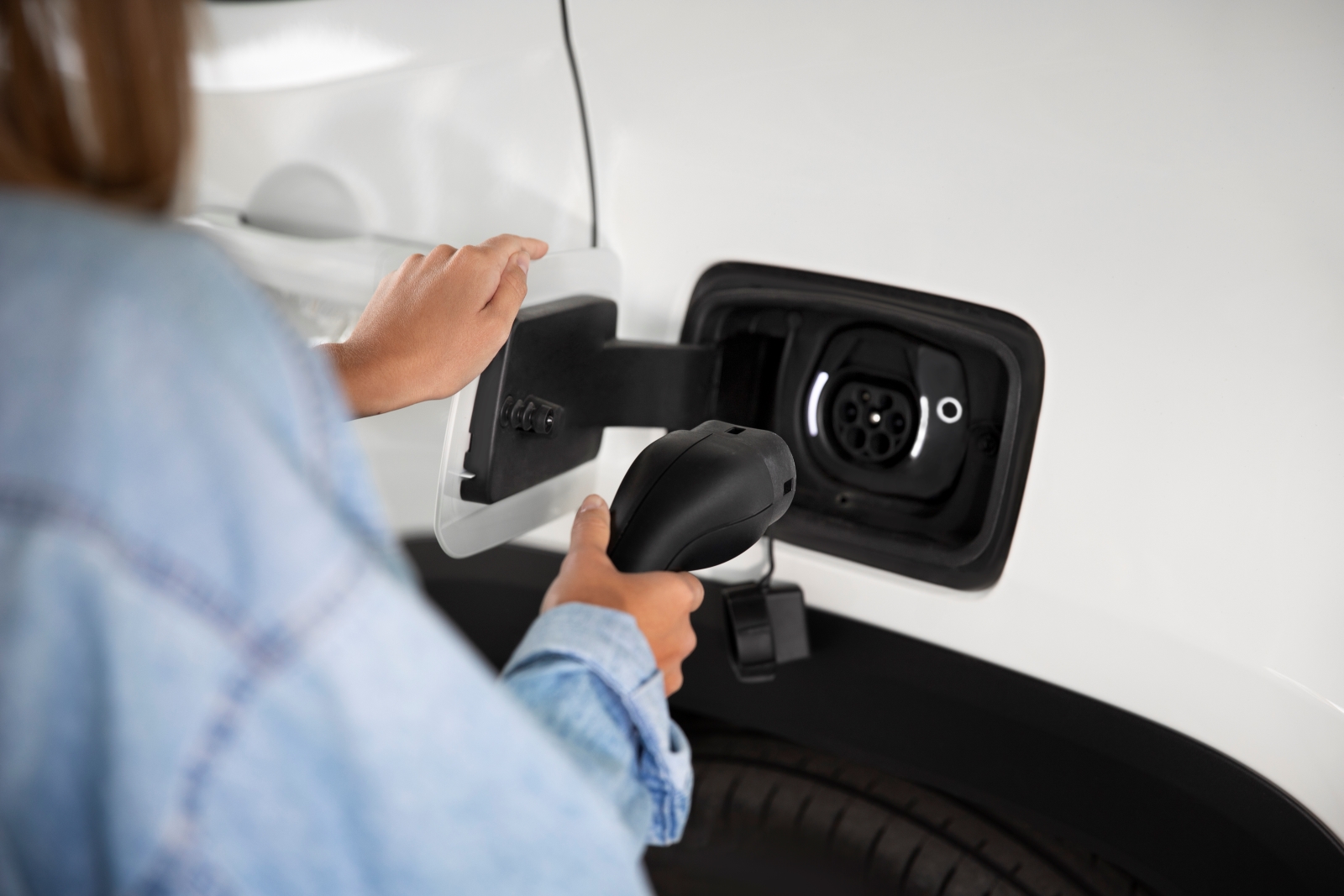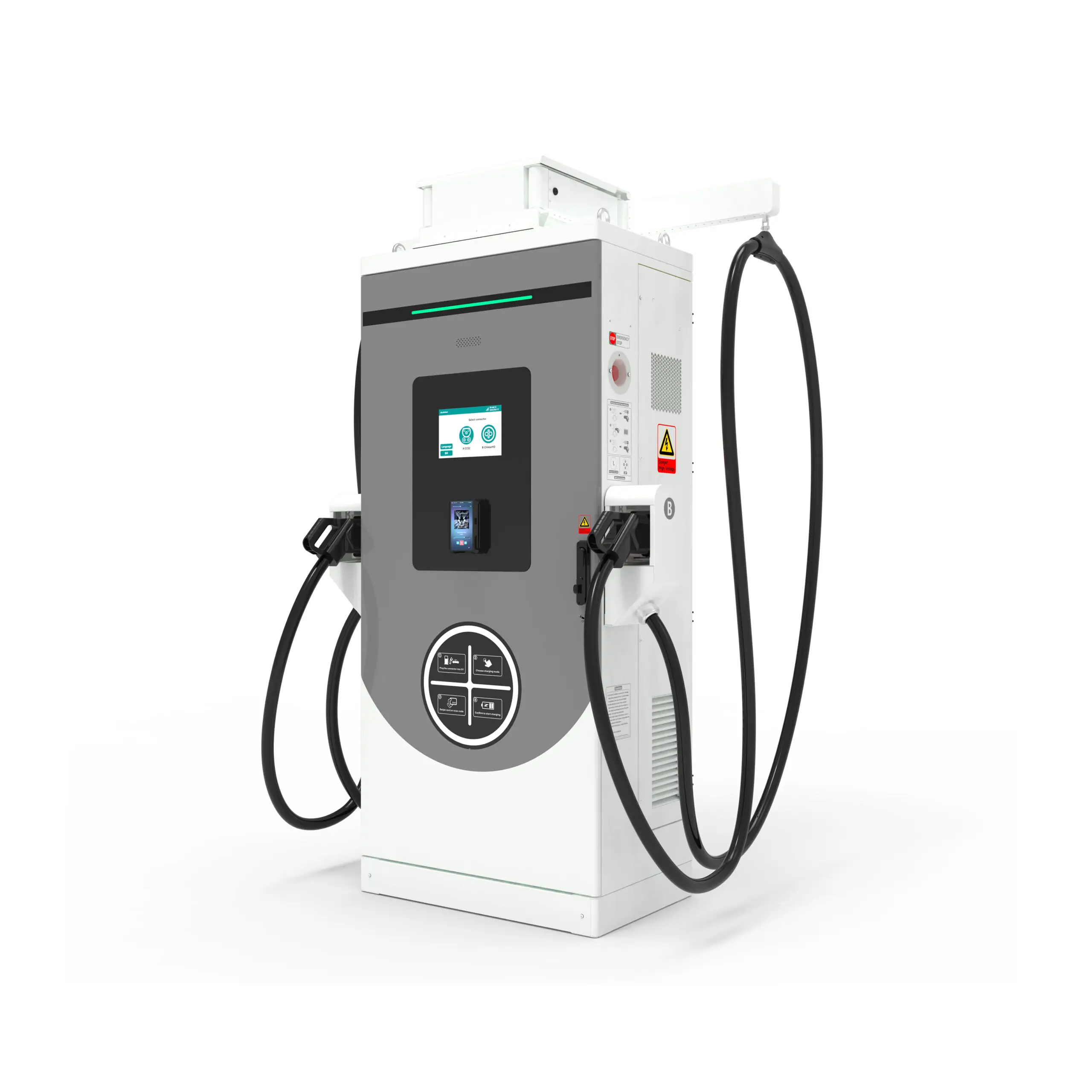As electric vehicles (EVs) continue to rise in popularity, the demand for reliable and fast charging systems is more critical than ever. Different EV charger connector types have been developed over time to deal with the evolving charging needs. Among these types, CHAdeMO and CCS connector types are the two most common options.
This article will help you better understand the CHAdeMO vs. CCS debate and will break down the details of these connector types.
Then, what is a CHAdeMO charger, and what is a CCS charger? Read on to figure them out!
CHAdeMO vs. CCS: What is CHAdeMO?
CHAdeMO, short for “Charge de Move,” is a fast-charging standard developed by a group of Japanese companies, including Nissan, Mitsubishi, and TEPCO, in 2010. It was designed to meet the needs of EVs that required quick charging during long-distance trips. CHAdeMO’s primary function is to deliver high-power direct current to the vehicle’s battery, eliminating the need for the vehicle itself to perform DC conversion.
This system was one of the first to standardize DC fast charging globally, and it remains a popular option in Asia. A major feature of CHAdeMO is its ability to support bidirectional charging. This means that electric vehicles can also send power back to the grid or be used as energy storage during peak demand or outages.
CCS vs. CHAdeMO: What is CCS?
The Combined Charging System (CCS) was introduced around 2012 as a versatile charging standard that supports both AC and DC charging.
The CCS plug is an upgraded version of the widely-used Type 2 connector (mainly in Europe) or Type 1 connector (mainly in North America), with two additional pins for DC fast charging. This setup allows for much faster charging times than traditional AC chargers.
CCS is widely adopted in Europe and North America and has successfully become the standard for many automakers, including BMW, Volkswagen, and Ford. Its capability to handle both AC and DC charging from a single port makes it a reliable choice for EV owners.
Given its widespread use and compatibility with a broad range of vehicles, CCS is emerging as one of the dominant global standards for EV charging.
CHAdeMO vs. CCS: A Comprehensive Comparison
1.Connector Design
As the CCS integrates both AC and DC charging pins into one compact design, the CCS connector can be directly connected to both AC and DC charging systems. As for the CHAdeMO, it has a unique connector design that is different from both Type 1 and Type 2 sockets, making it incompatible with other EV charging systems.
2.Charging Speed
Often, the CCS offers faster charging speeds. The original CHAdeMO standard (CHAdeMO 1.0) supports a maximum charging power of 62.5 kW, but newer iterations (CHAdeMO 2.0 and CHAdeMO 3.0) have pushed this to 400 kW or even higher. Comparatively, CCS offers faster charging right from its base standards, with higher power levels ranging from 50 kW to 350 kW.
3.Charging Flexibility
Both CHAdeMO and newer models of CCS allow bidirectional charging (Vehicle-to-Grid, Vehicle-to-Home), meaning they can both charge the vehicle and send power back to the grid. However, CCS is more versatile because it can handle both AC and DC charging from the same connector, which means CCS connectors have an edge in terms of flexibility in the comparison of CCS and CHAdeMO.
4.Vehicle Compatibility
In terms of compatibility comparison of CHAdeMO vs. CCS, CHAdeMO is mostly found in Japanese automakers like Nissan and Mitsubishi and is widely used in Japan and some Asian countries. Comparatively, a greater number of automakers support CCS charging, including Tesla, BMW, Volkswagen, and General Motors. Given its widespread use and compatibility with a broad range of vehicles, CCS is emerging as the dominant global standard for EV charging.
5.Costs
In comparison, CHAdeMO has lower upfront costs than CCS, which requires more complex hardware to support both AC and DC charging. Additionally, CCS chargers can be more expensive to install and maintain; meanwhile, CHAdeMO is a more cost-effective option with reliability proven in different situations.
6.Future Development
CHAdeMO has been progressively updated, with its latest version, ChaoJi, offering up to 900 kW of charging power. These latest developments make the CHAdeMO vs. CCS debate even more interesting. CCS is also gaining ground in terms of global adoption, especially with initiatives like Tesla’s Supercharger network integrating CCS compatibility.
Winline EV Charger Recommendation
Winline manufactures different types of EV chargers, including CHAdeMO chargers and CCS chargers. You can find standard charging piles ranging from 30 to 400 kilowatts, designed for European countries and Japan. Take the Electree Cypress 120-160kW Super-Fast Charging Station as an example.
This 120-160kW super-fast charging station provides high-power DC charging, supporting both CCS2 and CHAdeMO interfaces for compatibility with European and Japanese EVs. With power output options of 120kW, 150kW, and 160kW, it enables ultra-fast charging to reduce downtime for EV owners.
The station is designed with advanced data processing capabilities and smart energy dispatching, which ensures efficient operation while minimizing heat and noise. Furthermore, it has multiple protective features that monitor charging in real-time and provide early warnings in case of anomalies. Better, it suits both indoor and outdoor installation scenarios and meets rigorous international certifications such as CE, CB, UKCA, and more.
Wrapping-Up
Here, we reach the end of the comparison of CHAdeMO vs. CCS. They can experience changes as the EV charging technologies keep advancing and the needs for EV charging vary as time goes by. That’s why Winline always takes an active part in contributing to the standardization of EV charging, such as being a part of the formulation of the ChaoJi standard, and you can find leading EV charging solutions that are widely applicable at Winline.
With extensive experience in research and development, Winline offers a wide range of EV charging modules and fast charging stations that can fulfill the diverse needs of EV owners and businesses. If you are interested in EV charging, feel no hesitation to contact Winline to get professional advice and customized solutions!


